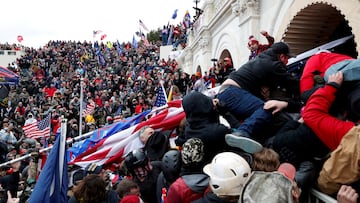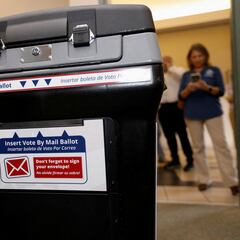The key findings of Jack Smith’s new filing of the 2020 election case against Trump
The judge overseeing the federal Jan. 6 case against former President Donald Trump has unsealed a redacted copy of the prosecution’s motion of evidence.


There are just under five weeks to go until Election Day 2024 in the United States when Americans’ votes will begin to be tallied to decide who will be the next president. While former President Donald Trump, the Republican candidate for a third time, won’t be held accountable or exonerated before then for his actions in a court of law for his role in the attempt to overturn the 2020 election results and the assault on the Capitol on January 6, 2021, the American public will get an insight into the case against him.
The judge overseeing the federal case in Washington DC unsealed a 165-page redacted motion of evidence presented by the prosecution to argue that his actions are not protected by the sweeping executive immunity granted to former presidents by the conservative members of the Supreme Court. It also lays out special counsel Jack Smith’s case against Trump and that he was acting in his personal capacity as a political candidate running for office.
The key findings of Jack Smith’s new filing of the 2020 election case against Trump
The court filing unsealed by US District Judge Tanya Chutkan on Wednesday provides a comprehensive look at the evidence investigators gathered about the former president’s actions leading up to and on January 6. It also reveals never-before-disclosed evidence into the efforts to subvert the transfer of power after the 2020 election.
BREAKING: Judge CHUTKAN has unsealed Jack Smith's 165-page redacted motion re presidential immunity. Read it here: https://t.co/ps1kPgsNUa
— Kyle Cheney (@kyledcheney) October 2, 2024
The case laid out by the prosecution in the filing alleges that Trump had planned to remain in power no matter what the outcome of the 2020 election results were. One witness was privy to a private conversation the former president had with his family aboard Marine One when he said, “It doesn’t matter if you won or lost the election. You still have to fight like hell.”
Furthermore, the filings argue that Trump, with the help of aides, planned to challenge the election results well before any votes were tallied. This included him stating his strategy to advisers of declaring victory even before the actual outcome was known.
Related stories
According to the filing, Trump also showed no concern for the danger that then Vice President Mike Pence was in when the mob was storming the Capitol. When an aide informed him, in the hopes that Trump would do something to calm things down, that Pence had had to flee to a secure location, the then president said, “So what?”, states the filing.
Prosecutors additionally describe his actions while the riot at the Capitol was unfolding with witnesses testifying that Trump sat in the White House dining room “where he used his phone to review Twitter and watched television,” of the chaos unfolding. That is backed up with forensic evidence the FBI was able to collect from his iPhone that mapped out and can describe his usage of the device “throughout the afternoon of January 6″ including across “news and social media applications.”


Complete your personal details to comment